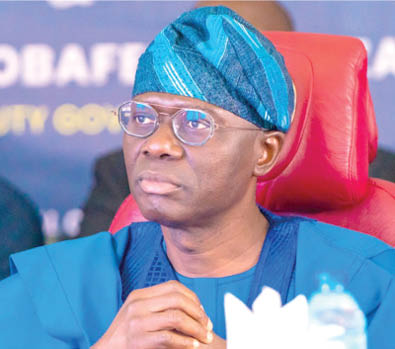Lagos’ll replace 50% of public vehicles with EV by 2030 – Sanwo-Olu
The Lagos State governor, Babajide Sanwo-Olu, says the state intends to replace 50 per cent of the public transportation fleet with electric vehicles by 2030. He said this followed the unveiling of the first Nigerian electric car in Lagos in November 2020. The governor said this at the flag-off of the three-day 10th Lagos International […]

Gov Babajide Sanwo-Olu
The Lagos State governor, Babajide Sanwo-Olu, says the state intends to replace 50 per cent of the public transportation fleet with electric vehicles by 2030.
He said this followed the unveiling of the first Nigerian electric car in Lagos in November 2020.
The governor said this at the flag-off of the three-day 10th Lagos International Climate Change Summit held at Continental Victoria Island.
Represented by his deputy, Dr Kadri Obafemi Hamzat, the governor emphasized that the state had successfully signed partnership deals with a private waste consortium to build a waste-to-energy plant that would provide electricity for 40,000 homes and convert 2,250 tonnes of waste daily.
He mentioned that Lagos had gone through implementation of a multi-modal transit BRT system, adding that these initiatives and more have improved the health and safety of Lagosians and reduced carbon emission from transportation by about 15 per cent.
He stressed that in 2015, the comity of nations reached a landmark agreement to keep global temperature below 1.5 degrees centigrade, adding that Lagos responded by developing a second five-year climatic action plan outlining goals and strategies for emission reduction.
The governor said that with the unveiling of the first Nigerian electric car in Lagos in November 2020, the state intended to replace 50 per cent of public transportation fleet with electric vehicles by 2030.
“The red and blue line projects recently launched are crucial for reducing the carbon footprint, decreasing vehicular emission, cutting down travel times and promoting a sustainable low carbon future for Lagos,” he said.
The Commissioner for Environment and Water Resources in the state, Tokunbo Wahab, noted that the solution to climate change lied in climate resilient development, which involves integrating adaptive measures with actions to reduce or avoid greenhouse gas emissions in ways that provide wider benefits.
